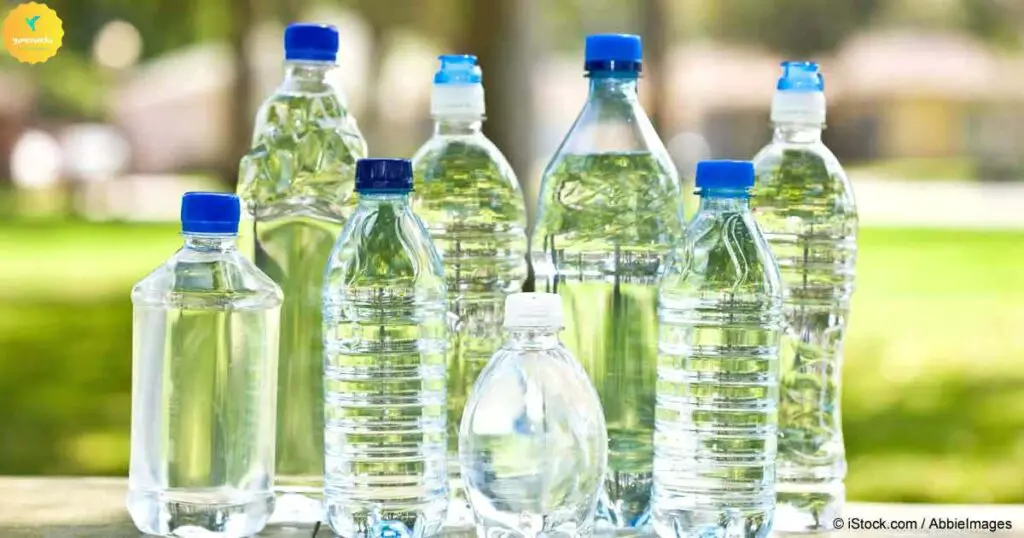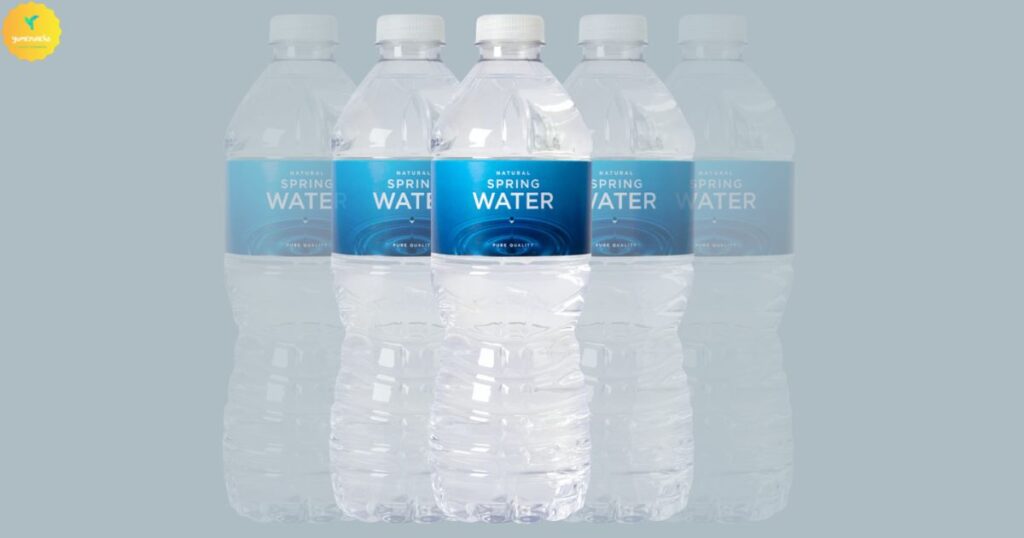While there is no clear evidence yet between microplastics and serious diseases, researchers are concerned about their long-term effects on our bodies. The Ministry of Food and Consumer Affairs has also asked the packaged water industry to give suggestions for alternatives to Resin bottles. Taking a sip from Resin water bottles will do more than quench your thirst. You will also be swallowing an unhealthy dose of microplastics; tiny plastic particles measuring less than 5 mm.
Being Resin, these particles do not decompose so easily and accumulate in our bodies over time, a process called bioaccumulation.Key to this concern are the chemicals used in the manufacturing of plastics, some of which have already been linked to serious diseases. The presence of microplastics in human feces shows that we are exposed to microplastics in our daily lives. They have found their way into the food chain, raising concerns about food safety.
They are also present in bottled water globally. Studies examining microplastics in bottled water have reported particle sizes of less than 1mm, with most coming from the bottle material, spout, and cap. For more information on this topic, visit WELLHEALTHORGANIC.COM: JAGGERY WITH INCREDIBLE HEALTH BENEFITS. The particles coming from the material of the bottle itself are transparent in color while the particles coming from the lid are either blue or green in color.
The most commonly found plastic is polyethylene terephthalate (PET), which is used to manufacture both bottle materials and caps.Studies also provide evidence that microplastics in bottled water are caused by a number of factors such as physical stress during transportation, bottle shaking, and injection of high-pressure water into bottles in production plants. Additionally, thermal effects during storage also impair the fragmentation process.
Reusable PET water bottles contain more microplastic particles than single-use PET bottles. Frequent opening and closing of bottles creates more particles due to friction. The key question remains unanswered: To what extent are microplastic particles found in bottled water a threat to human health? Researchers have developed several hypotheses on both physical and chemical threats. No published studies have directly studied the effects of plastic particles on humans. The only existing research relies on laboratory tests that expose cells or human tissues to microplastics or that employ rodents.
According to the World Health Organization, only microplastics with particle sizes smaller than 1.5 µm (1.5 micrometers) can be ingested or absorbed due to their solubility and can be directly excreted. Thus, microResin particles (<1.5 µm) from bottled water are able to migrate through the intestinal wall and reach various tissues of the body, including the intestine, liver, and lymph nodes. Microparticles (<1.5 µm) that penetrate cells or tissues can cause irritation simply by their external presence, leading to inflammation of lung tissue and potentially leading to cancer. The accumulation of these particles in human tissues has been linked to chemical toxicity.
Compounds such as Resinizers, stabilizers, and pigments used in production can be released by microplastics and travel through our bodies in the bloodstream. These chemicals have been linked to health problems such as inflammation, Geno toxicity, oxidative stress, and damage to the gastrointestinal tract. Chemicals released from bottled water packaging materials are now known to be emerging pollutants and endocrine-disrupting chemicals (EDCs) that can cause serious health problems, including cancer and developmental defects.
The long-term effects of exposure to microResin on human health are not yet fully understood and research is in progress. But it is clear that they are a potential threat and steps should be taken to limit our exposure to them in daily life. “Microplastics time-bomb: Why we should not reuse plastic water bottles” If you use bottled water as your primary source of drinking water, you should try to minimize moving bottles, and opening, and closing bottles unnecessarily.
Plastic water bottles

Reuse increases the rate of abrasion of the internal surface by releasing excess microplastic particles from the internal surface of the bottle. It is also important to keep the Resin bottle in a cool and dry place to reduce exposure to heat and sunlight. Sunlight can accelerate the degradation of bottles, making them more brittle and fragile, which releases more microplastic particles.
Additionally, heat also causes these PET bottles to degrade chemical pollutants like Resin zers that can contaminate water. These chemicals, such as phthalates and biphenyl A (BPA), are harmful to human health when consumed in large amounts.
FAQ’s
What significant milestone regarding visas for Indians is the US expected to achieve this year according to Rajkotupdates.news?
The US is on track to grant more than 1 million visas to Indians this year.
What are some health benefits of buffalo milk according to WellHealthOrganic.com?
Buffalo milk is rich in calcium, protein, and essential vitamins, making it beneficial for bone health, muscle repair, and overall nutrition. It also contains more fat than cow’s milk, which can provide more energy and a creamier taste.
Conclusion
प्लास्टिक वाटर बॉटल्स का पुनर्व्यय नहीं करना चाहिए क्योंकि इससे माइक्रोप्लास्टिक पार्टिकल्स की मात्रा बढ़ती है जो स्वास्थ्य के लिए हानिकारक होते हैं। पुनर्व्यय के कारण इन पार्टिकल्स की मात्रा और सूक्ष्म स्तर पर हानिकारक रसायनों का स्राव होता है जो स्वास्थ्य संबंधी समस्याओं का कारण बनता है। इसके अलावा, पुनर्व्यय के कारण बॉटल्स की अंदरूनी सतह का क्षरण होता है जिससे और माइक्रोप्लास्टिक पार्टिकल्स निकलते हैं। इसलिए, प्लास्टिक वाटर बॉटल्स का पुनर्व्यय नहीं करना चाहिए और इसके बजाय नई बॉटल्स का उपयोग किया जाना चाहिए।
प्लास्टिक की समस्या स्वास्थ्य और पर्यावरण दोनों के लिए हानिकारक होती है। इसके कारण स्वास्थ्य संबंधी समस्याओं का सामना करना पड़ता है जिसमें कैंसर, जन्मजात विकार, स्वास्थ्य संबंधी समस्याएं शामिल हैं। इसलिए, प्लास्टिक के पुनर्व्यय के लिए कदम उठाना चाहिए और इसके बजाय स्वस्थ साधनों का उपयोग किया जाना चाहिए।

Daniel, a seasoned author with 8 years of expertise in SEO, brings a delectable blend of culinary flair and digital finesse to the food niche on his website.



